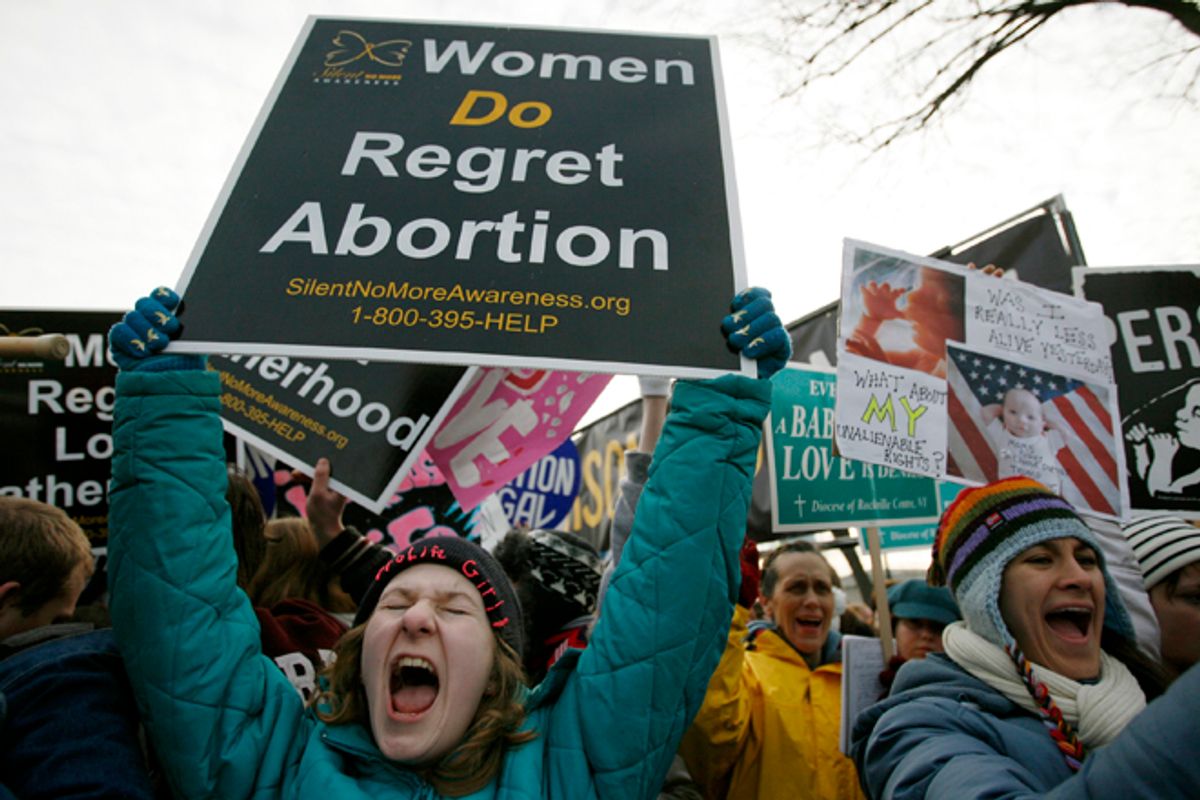The Arkansas Legislature has overridden Gov. Mike Beebe's veto, and an unconstitutional ban on abortion at 20 weeks has now become law. The House voted 53 to 28 to override the veto, and Thursday the Senate overrode it by a vote of 19-14. The new law will go into effect immediately, bringing Arkansas into the ranks of seven other states that restrict or ban abortions after the 20-week mark.
The new law provides for exceptions only in cases of rape, incest or to save the life of the mother, but has no such provisions for fetal anomalies or lethal fetal disorders. It is also in complete, total and flagrant violation of Roe v. Wade, but that was the point, of course.
Gov. Beebe vetoed the bill on the grounds that it is a violation of women's constitutionally protected right to an abortion, explaining in a statement: "When I was sworn in as Governor I took an oath to preserve, protect, and defend both the Arkansas Constitution and the Constitution of the United States. I take that oath seriously."
He also raised the financial risks of such an unconstitutional law (emphasis mine):
The adoption of unconstitutional laws can be very costly to the taxpayers of our State. It has been suggested that outside groups or others might represent the State for free in any litigation challenging the constitutionality of House Bill 1037, but even if that were to happen, that would only lessen the State's own litigation costs. Lawsuits challenging unconstitutional laws also result in the losing party -- in this case, the State -- having to pay the costs and attorneys' fees incurred by the litigants who successfully challenge the law. Those costs and fees can be significant. In the last case in which the constitutionality of an Arkansas abortion statute was challenged, Little Rock Family Planning Services v. Jegley, the State was ordered to pay the prevailing plaintiffs and their attorneys nearly $119,000 for work in the trial court, and an additional $28,900 for work on the State's unsuccessful appeal. Those fee awards were entered in 1999, and litigation fees and costs have increased extensively since then. The taxpayers' exposure, should HB 1037 become law, will be significantly greater.
None of this is to mention that the rights, bodies and lives of women in Arkansas have been used by their state Legislature as collateral in a culture war. Or that these laws criminalize women (literally) for exercising their constitutionally protected rights. Or that it is 2013 and we are we still, somehow, fighting to keep abortion safe and legal in this country.
But I digress.
Beebe is right, there will be legal challenges. And they will be costly. But even a lawsuit is no guarantee that the ban will be reversed: Georgia blocked a similar measure, while courts in Arizona upheld their state ban.
And sadly, the 20-week ban isn't the only bad news out of Arkansas today. The new law might soon become redundant: The Senate has also just passed the "Heartbeat Bill," which would restrict abortion at 12 weeks.
The measure is now set to go before the governor, who, once again, will likely veto it. There's more hope this time that the veto might stick since the Senate overrode his earlier veto by a very narrow margin. Given how extreme the 12-week ban is (even by anti-choice standards), it's more likely that some senators will reverse course.
Updates to come as the bill goes before the governor.



Shares